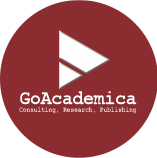ZERO DEBT STRATEGY FOR EDUCATIONAL INSTITUTION SUSTAINABILITY: REVIEW OF MUDHARABAH CONTRACTS IN BUSINESS UNIT DEVELOPMENT
DOI:
https://doi.org/10.15575/jim.v6i1.42436Keywords:
Mudharabah Contracts, Zero Debt, Educational Institution Sustainability.Abstract
References
Abad-Segura, E., & González-Zamar, M. D. (2021). Sustainable economic development in higher education institutions: A global analysis within the SDGs framework. Journal of Cleaner Production, 294, 126133.
Ajiani, I. P. F., Ayu, B. D. P., Sukma, P., & Mubaraq, M. R. (2024). Analisis Rasio Keuangan Untuk Mengukur Kinerja Keuangan Lembaga Pendidikan Non-Formal. Zentrum Economic, Business, Management, Accounting Research, 2(1), 14-19.
Akdon, D., & Kurniadi, D. A. (2015). Manajemen Pembiayaan Pendidikan. Bandung: Remaja Rosdakarya.
Alshubiri, F. N. (2021). Analysis of financial sustainability indicators of higher education institutions on foreign direct investment: Empirical evidence in OECD countries. International Journal of Sustainability in Higher Education, 22(1), 77-99.
Andiyansari, C. N. (2020). Akad Mudharabah dalam Perspektif Fikih dan Perbankan Syariah. SALIHA: Jurnal Pendidikan & Agama Islam, 3(2), 42-54.
Asprila, F. B., Samsuri, A., & Yudha, A. T. R. C. (2021). Pengaruh Pembiayaan Mudharabah Pada Nasabah Pemilik Umkm Ditinjau Dari Perubahan Ekonomi. Jurnal Ekonomi Syariah Teori dan Terapan, 8(3), 305-317.
Fahrurrozie, R., Ali, Z. M., & Possumah, B. T. (2022). Konsep Bisnis Tanpa Hutang dari Pemikiran TaqiyuddÄ«n Al-NabhÄni: Thematic Analysis Approach. IRTIQO': Postgraduate Journal of Islamic Economics, Finance and Accounting Studies, 1(2), 1-24.
Fatah, N. (2000). Ekonomi dan Pembiayaan Pendidikan. Bandung: Remaja Rosdakarya.
Hanim, Z., Anggal, N., & Sanda, Y. (2023). Strategi pembiayaan pendidikan pada perguruan tinggi keagamaan Katolik swasta untuk pemenuhan capaian kinerja. JPPI (Jurnal Penelitian Pendidikan Indonesia), 9(2), 604-614.
Khudari, I. (2014). Penerapan prinsip mudharabah dalam perbankan syariah. Jurnal IUS Kajian Hukum dan Keadilan, 2(4), 42.
Lamusu, S., Rahman, A. F., & Adib, N. (2021). Sharia conformity for mudharabah financing practices in sharia banks based on the DSN-MUI Fatwa Number 07 year 2000: A case study. International Journal of Research in Business and Social Science (2147-4478), 10(4), 239-248.
Lathif, A. A., & Habibaty, D. M. (2022). Harmonization of DSN-MUI Fatwa with Positive Law Study of Legal Bonding of Mortgage Right in Contract for Mudharabah & Musyarakah Agreement. In Proceeding International Conference on Law, Economy, Social and Sharia (ICLESS) (Vol. 1, No. 1, pp. 290-306).
Le, T. T., Nguyen, T. L., Trinh, M. T., Nguyen, M. H., Nguyen, M. P. T., & Pham, H. H. (2021). Adopting the Hirschman–Herfindahl Index to estimate the financial sustainability of Vietnamese public universities. Humanities and Social Sciences Communications, 8(1), 1-10.
McMeen Jr, F. T. (2021). 501 (c)(3) Educational Sustainability: A Quantitative Study of Nonprofit Private School Financial Viability in Rural West Tennessee. The University of Memphis.
Miglo, A. (2020). Zero-debt policy under asymmetric information, flexibility and free cash flow considerations. Journal of Risk and Financial Management, 13(12), 296.
Muhamad. (2015). Sistem Keuangan Islam: Prinsip dan Operasionalnya di Indonesia. Depok: Rajawali Pers.
Nilasari, S. (2013). Sukses Mendapatkan Modal Tanpa Modal dan Tanpa Utang. Jakarta: Laskar Aksara.
Nurazizah, N. E. (2020). Implementasi Akad Hiwalah dalam Hukum Ekonomi Islam di Perbankan Syariah. TAFAQQUH, 5(2), 38-52.
Prasetyo, M. A. M. (2017). Islamic Boarding School Business Unit Management. HIKMAH: Journal of Islamic Education, 6(1), 18-36.
Supriadi, D. (2004). Satuan Biaya Pendidikan. Bandung: Remaja Rosda Karya.
Wahyuni, L., Mursalim, M., & Nurwana, A. (2023). Pengaruh Aplikasi Rencana Kegiatan Anggaran Sekolah (ARKAS) Dan Aplikasi Sistem Informasi Manajemen Bos Terhadap Akuntabilitas Pelaporan Keuangan Dana Bos di Kota Makassar. Journal on Education, 5(4), 13139-13152.
Downloads
Published
How to Cite
Issue
Section
Citation Check
License
Copyright (c) 2024 Komitmen: Jurnal Ilmiah Manajemen

This work is licensed under a Creative Commons Attribution-NonCommercial-ShareAlike 4.0 International License.

This work is licensed under a Creative Commons Attribution-ShareAlike 4.0 International License.













